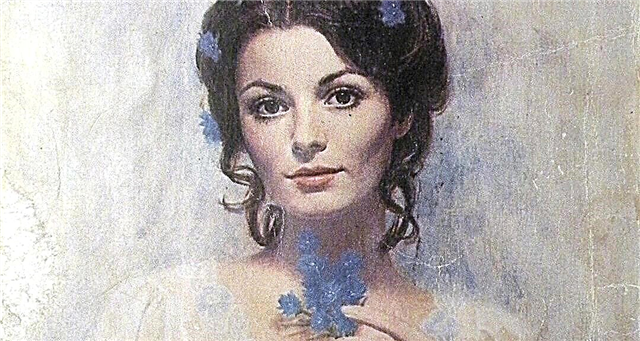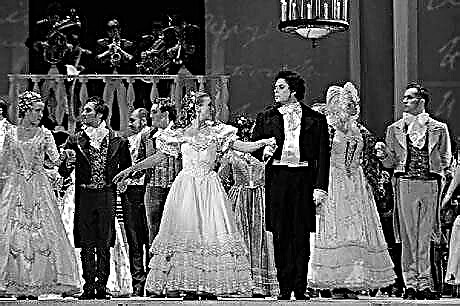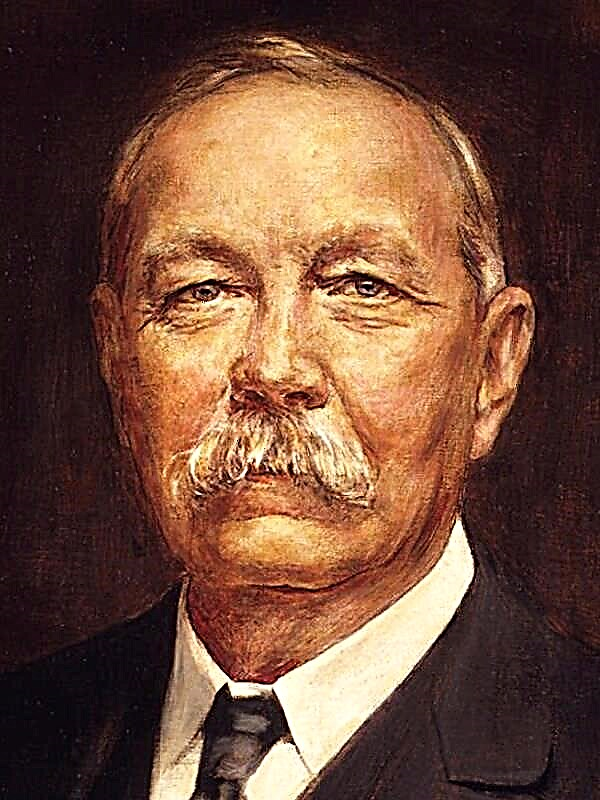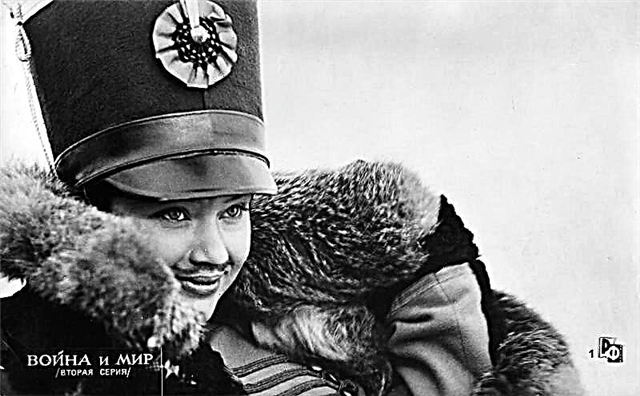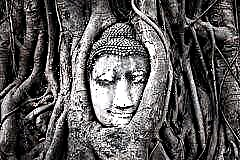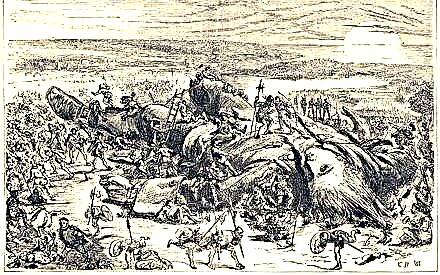There were three famous writers of the tragedies in Athens: the eldest - Aeschylus, the middle - Sophocles and the youngest - Euripides. Aeschylus was mighty and majestic, Sophocles is clear and harmonious, Euripides is tense and paradoxical. Once watching, the Athenian audience for a long time could not forget how his Fedra was tormented by a passion for stepson, and his Medea, in chorus, advocated for women's rights. The old men looked and cursed, and the young admired.
Aeschylus died long ago, back in the middle of the century, and Sophocles and Euripides died half a century later, in 406, almost simultaneously. Disputes between lovers immediately went: which of the three was better? And in response to such disputes, the playwright Aristophanes directed the comedy The Frogs about it.
“Frogs” means that the choir in the comedy is dressed with frogs and begins his songs with croaking lines: “Brekekekeks, coax, coax! / Brekekekeks, coax, coax! / Swamp waters we children, / Tighten the anthem, friendly choir, / Lingering moan, ringing our song! ”
But these frogs are not simple: they live and croak not somewhere, but in the infernal river Acheron, through which the old shaggy boatman Charon carries the dead to the next world. Why did this comedy need that light, Acheron and the frogs, for some reason.
The theater in Athens was under the auspices of Dionysus, the god of wine and earthly vegetation; Dionysus was portrayed (at least sometimes) by a beardless gentle youth. This Dionysos, worried about the fate of his theater, thought: “I’ll go down to the afterlife and bring Euripides back to the light so that the Athenian scene will not be completely empty!” But how to get to the other world? Dionysus asks Hercules about this - after all, Hercules, a hero in the lion's skin, went down behind the terrible three-headed hellish dog Kerber. “Lighter than the lung,” says Hercules, “go off, poison yourself or throw yourself off the wall.” “Too stuffy, too tasteless, too cool; better show how you walked. " “Here is the afterlife boatman Charon who will take you across the stage, and you will find yourself there.” But Dionysus is not alone, with him a slave with luggage; Is it possible to forward it with a fellow traveler? This is just the funeral procession. “Hey deceased, grab our bale with you!” The deceased readily rises on a stretcher: “Will you give two drachmas?” - “Don't care!” “Hey grave diggers, carry me on!” - "Well, throw off at least half a drachma!" The dead man is indignant: “To revive me again!” There is nothing to do, Dionysus and Charon are rowing dry through the stage, and a slave runs around with luggage. Dionysus is unaccustomed to row, groans and curses, and the choir of frogs mocks him: “Brekekekeks, coax, coax!” They meet at the other end of the stage, exchanging afterlife impressions: “Have you seen the local sinners, and thieves, and false witnesses, and bribe takers?” - “Of course, I saw, and now I see,” and the actor points to the audience. The audience laughs.
Here is the palace of the underground king Hades, Eak sits at the gate. In myths, this is the great judge of human sins, and here - the boisterous slave-gatekeeper. Dionysus throws a lion's skin, knocks. "Who's there?" - "Hercules has come again!" - “Ah, the villain, oh, the villain, it was you who had taken away Kerber, my dear little dog! Wait a minute, I’ll send you all the hellish monsters! ” Ehak leaves, Dionysus is terrified; gives the slave Heracles skin, he puts on his dress. They approach the gate again, and the servant of the underground queen is in them: “Hercules, our dear, the mistress remembers you so much, she has prepared such a treat for you, come to us!” The slave is a little girl, but Dionysus grabs his cloak, and, quarreling, they change again. Ehak returns with hellish guards and cannot quite understand who the master is here, who the slave is. They decide: he will quit them in turn with rods, - whoever screams first, therefore, is not a god, but a slave. Beats. "Oh oh!" “Yeah!” “No, I thought: when will the war end?” - "Oh oh!" “Yeah!” - "No, this is a splinter in my heel ... Oh, oh! ... No, I remembered the bad poems ... No, I quoted Euripides." - "I don’t understand, even though the god Hades understands himself." And Dionysus with a slave enter the palace.
It turns out that in the other world there are also poets' competitions, and so far Aeschylus has been reputed to be the best, and now he is disputed by the newcomer Euripides. There will be judgment now, and Dionysus will be judge; now they will be poetry "to measure with the elbows and weigh kettlebells." True, Aeschylus is unhappy: "My poetry did not die with me, but Euripidova died and at his fingertips." But he is being humbled: the trial begins. Around the litigants there is already a new choir - croaking frogs remained far away in Acheron. The new choir is the souls of the righteous: at that time, the Greeks believed that those who lead a righteous life and took initiation into the sacraments of Demeter, Persephone and Iacchus, would not be insensitive, but blessed. Iacchus is one of the names of Dionysus himself, so such a choir is quite appropriate here.
Euripides accuses Aeschylus: “Your plays are boring: the hero stands, but the choir sings, the hero will say two or three words, then the play is over. Your words are old, bulky, incomprehensible. And everything is clear with me, everything is just like in life, and people, and thoughts, and words. ” Aeschylus objects: “The poet must teach good and truth. Homer is famous for showing examples of valor, and what example can your depraved heroines set? “High language is appropriate for high thoughts, and the subtle speeches of your heroes can only teach citizens not to obey their superiors.”
Aeschylus reads his poems - Euripides finds fault with every word: “Here you have Orestes over his father’s grave praying to hear, to heed ..., but to hear and to listen is a repetition!” (“Eccentric,” Dionysos reassures him, “because Orestes turns to the dead, and here, no matter how you repeat it, you won’t end up!”) Euripides reads his poems - Aeschylus finds fault with every line: “All the dramas in you begin with genealogies:“ Hero Pelop who was my great-grandfather ... "," Hercules, who ... "," That Cadmus, which ... "," That Zeus, who ... ". Dionysus separates them: let them speak on one line, and he, Dionysus, with weights in his hands will judge what weight is greater. Euripides pronounces a clumsy and cumbersome verse: “Oh, if the rook had stopped running ...”; Aeschylus is smooth and euphonious: “A river stream flowing through meadows ...” Dionysus suddenly shouts: “Aeschylus is heavier!” - "But why?" “He soaked the verses with his stream, so they draw more.”
Finally, the verses are set aside. Dionysus asks the poets for their opinions on political affairs in Athens and shrugs his arms again: "One answered wisely, and the other wiser." Which of the two is better to take out of the underworld? “Aeschylus!” - announces Dionysus. "And he promised me!" - Euripides is indignant. “Not me - I promised my tongue,” Dionysus answers in Euripides’s verse (from Hippolytus). “Guilty and not ashamed?” “There is no fault where no one sees,” Dionysus answers with another quote. "Do you laugh at me over the dead?" “Who knows, life and death are not the same thing?” - Dionysus answers with the third quote, and Euripides is silent.
Dionysus and Aeschylus are going on a journey, and the underground god warns them: “Tell such a politician, such a world-eater, and such a poop that they should go to me long ago ...” The choir escorts Aeschylus to the poet and Athens: so that they can quickly win and get rid of such and such politicians, and such and such world-eaters, and from such and such poopers.



